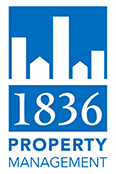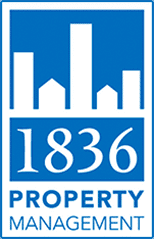In property management, addressing tenant complaints isn’t just a day-to-day task. Maintaining a positive relationship with occupants and ensuring their overall satisfaction is essential. These complaints range from simple issues like a leaking faucet to more complex ones like persistent noise disturbances.
How these complaints and maintenance requests are handled can significantly impact tenant loyalty and the property’s reputation. A prompt, empathetic, and effective response resolves the immediate problem and demonstrates a commitment to the welfare of your residents. This is crucial for long-term retention and for maintaining a harmonious living environment.
Understanding the Nature of Tenant Complaints
Various issues, from minor annoyances to serious concerns, can impact the quality of life of your tenants. Property managers need to listen actively to address these issues effectively, understanding each issue’s severity.
This approach is about being responsive and legally compliant, as certain complaints may pertain to the basic standards of habitability that landlords must maintain. Recognizing and appreciating the diverse nature of these problems helps property managers offer legally sound solutions aligned with people’s expectations.
Creating a Proper System
A systematic approach to handling tenant complaints involves developing a comprehensive management system. This system should allow for easy logging of complaints, efficient tracking, and swift action. Using modern digital tools and property management software can greatly enhance this process. That’s because it offers transparency and accountability in handling these issues.
An organized system enables property managers to respond promptly to tenant concerns. This way, it records actions taken and provides consistent and fair treatment of all problems. Such a system is invaluable for managing complaints, expectations, and renter satisfaction.
Prioritizing Maintenance Requests
Efficient management of maintenance requests involves categorizing them based on urgency and impact. Immediate attention should be given to issues that affect habitability, like electrical or plumbing problems. But when it comes to less urgent matters, you can schedule them for later resolution.
Prioritizing requests in this manner helps handle resources effectively and ensures that critical issues are resolved promptly. Also, conducting regular maintenance checks can prevent many problems before they escalate, thereby reducing the frequency of emergency repairs and maintaining a higher standard of living for everyone.
Communication: The Key to Resolving Every Problem
Effective communication is essential for managing and resolving complaints, including the ability to handle problematic tenants easily and efficiently. Acknowledging and promptly responding to an issue sets the stage for a constructive dialogue.
Keeping residents informed about the resolution process is crucial and can help mitigate frustration, especially in more challenging situations. In addition, diverse communication channels, such as online platforms, direct phone lines, and meetings, ensure accessibility for all, catering to different preferences.
This approach demonstrates commitment and transparency and helps build trust. When wielded skillfully, good communication is a tool that can transform potentially problematic situations into opportunities for positive renter-manager interactions. It enhances the overall tenant experience and cements trust and understanding.
Addressing Tenant Complaints Within Legal Frameworks
Effectively managing a renter’s problems needs a deep understanding of legal obligations under landlord-tenant laws. This legal insight ensures that resolutions are fair and align with legal requirements.
At the same time, prioritizing issues, especially those related to health and safety, is crucial to complying with habitability standards. Meticulous record-keeping of each complaint and action taken is vital for legal protection, resolving future disputes, and showcasing ethical management practices.
Staying up-to-date with changing regulations is equally important. This ongoing education, combined with regular training for staff on legal responsibilities and complaint handling, helps prevent legal issues and ensures compliance with current laws. Such legal mindfulness in resolving the renter’s issues reinforces trust and professionalism. It demonstrates to people that their concerns are handled responsibly.
Learning from Feedback
The feedback you get from tenants can drive significant improvements in property management. Actively seeking and thoughtfully considering the feedback you get is an opportunity to identify and address underlying issues.
This process can lead to proactive changes that resolve existing problems and preempt potential future concerns. By embracing this feedback, property managers can make informed decisions about property maintenance, policy updates, and service improvements.
On top of that, engaging with tenants through surveys, feedback forms, or informal conversations can foster a sense of community and show tenants that their opinions are valued. This approach enhances current residents’ living experience and helps attract new ones.
Continuous improvement based on feedback can lead to a more efficient, tenant-friendly environment, setting a property apart in a competitive market. Learning from detailed feedback is about evolving and adapting to meet tenant expectations, ensuring long-term satisfaction and retention.
The Bottom Line
Handling tenant complaints is more than just resolving individual issues. It is about fostering a positive living environment and building lasting relationships with tenants. This process requires a combination of empathy, effective communication, and a systematic approach to complaint resolution. Property managers can address issues efficiently by understanding the nature of complaints, prioritizing maintenance requests, and responding within legal frameworks.
Training staff to handle complaints, using feedback for continuous improvement, and maintaining open lines of communication are all vital elements of a successful strategy. Successfully addressing each complaint improves a tenant’s experience and strengthens the property’s reputation.
Ultimately, the goal is to handle complaints and use them as opportunities to improve and grow. Successfully managing tenant complaints means creating an environment where tenants feel heard, valued, and content.







